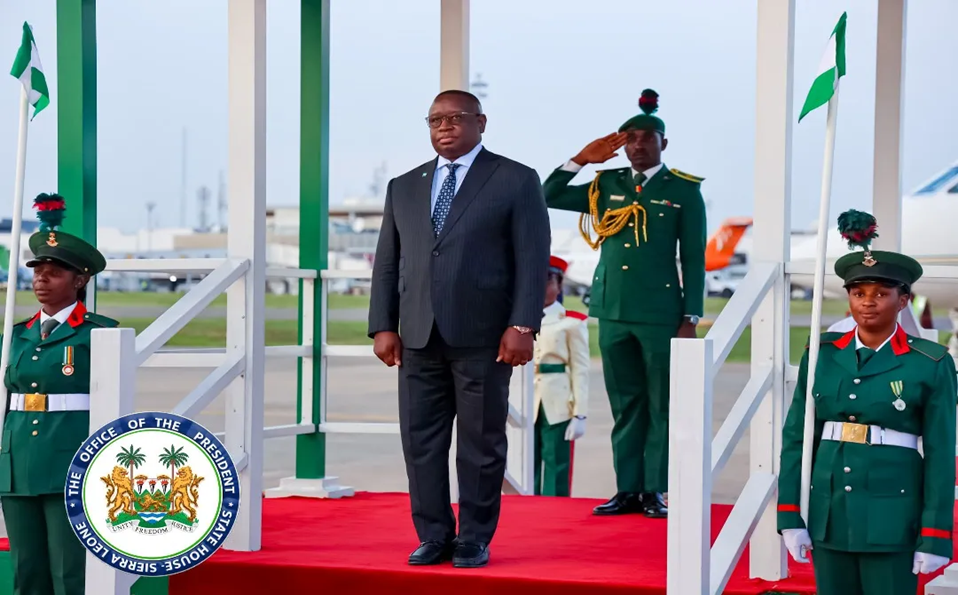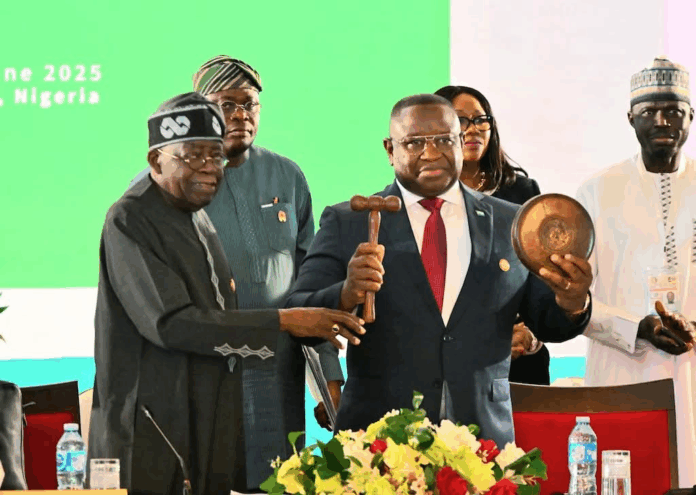By Marcus A. Bangura | Editorial & Commentary
In his inaugural address as Chairman of the ECOWAS Authority of Heads of State and Government, President Julius Maada Bio captured the pounding of a restless region with one simple yet profound observation: “Across West Africa, citizens, especially our youth, are demanding not just elections, but accountability, transparency, and a fair stake in national life.” In those few words, President Bio not only acknowledged the prevailing discontent among West Africans, but also issued a call to action for a more meaningful kind of democracy, one that extends far beyond the periodic ritual of casting votes.
The timing of this message could not be more critical. West Africa is at an inflection point. While the region has seen a proliferation of electoral exercises over the past two decades, the democratic dividend has largely failed to reach ordinary citizens. Elections have too often become performative, manipulated by incumbents, undermined by judicial compromise, or weaponized to confer legitimacy on governments lacking popular trust. From Senegal to Sierra Leone, from Burkina Faso to Nigeria, what was once the hope of post-military rule has increasingly been replaced with cynicism, low voter turnout, and, in some cases, outright rejection of the democratic order.
President Bio’s statement lays bare a hard truth: elections alone do not make a democracy. True democracy lives in the integrity of institutions, in the independence of courts, in the freedom of the press, and in the genuine responsiveness of leaders to the governed. It is about how leaders are held accountable between elections, not just how they get into office. Transparency in budgeting, fairness in public procurement, equal access to justice, and curbs on executive excess, these are the building blocks of democratic accountability. West Africans are tired of elites who seek power for its own sake, while neglecting the social contract that gives that power meaning.
What makes President Bio’s remark especially poignant is his recognition of youth agency. With over 60% of West Africa’s population under the age of 25, the future of the region belongs to its young people. But it is precisely this demographic that feels most excluded from governance, most vulnerable to unemployment, and most at risk of radicalization or migration. The youth are not demanding charity or empty slogans; they are demanding a seat at the table, in leadership, in entrepreneurship, in policy making. For them, elections that merely swap old faces without systemic change are no longer sufficient.

As ECOWAS Chair, President Bio must now walk the talk. His leadership should mark a shift away from lip service and towards actionable reforms within the ECOWAS bloc. This includes championing electoral transparency and regional observation missions that speak truth to power. It means supporting member states to adopt open data policies, implement anti-corruption reforms, and create inclusive dialogue platforms for young people, women, and marginalized communities. It also requires the ECOWAS Commission itself to reform, becoming more representative, less bureaucratic, and more accountable to the people it claims to serve.
Moreover, ECOWAS must be bold in calling out democratic backsliding among its members, whether it comes in the form of unconstitutional term extensions, the silencing of the media, or politically motivated arrests. Regional solidarity should not become a shield for impunity. President Bio’s own leadership in Sierra Leone, both its progress and its pitfalls, will come under renewed scrutiny as he now represents the face of regional democratic commitment.
The truth is, West Africa does not lack institutions or charters, it lacks the political will to implement them with sincerity. The ECOWAS Protocol on Democracy and Good Governance, adopted in 2001, was ahead of its time. But over two decades later, the region continues to witness coups, crackdowns, and cronyism. President Bio’s acknowledgment of citizen disillusionment is a start, but it must be followed by bold, consistent, and principled leadership. Anything less would be a betrayal of the very people whose hopes he has so clearly articulated.
As the region turns a new page under his chairmanship, West Africans will be watching, not just for the next round of elections, but for real signs of accountability, transparency, and an inclusive future they can believe in.


